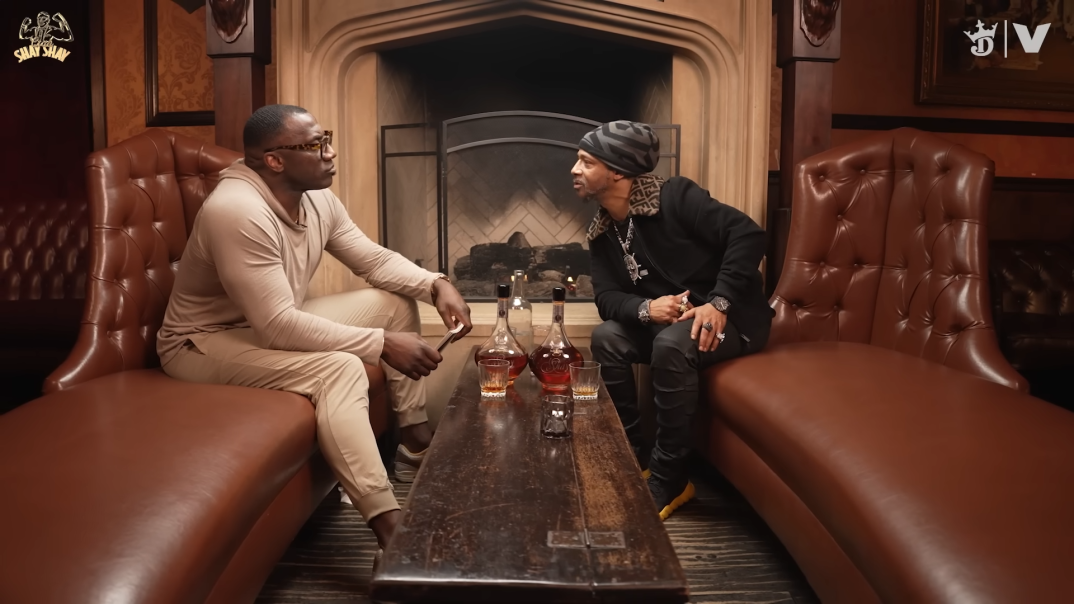Editor’s note: The following article is an op-ed, and the views expressed are the author’s own.
In a recent episode of Shannon Sharpe’s “Club Shay Shay” podcast, comedian Katt Williams, known for his unapologetic and candid nature, unleashed a torrent of accusations and revelations that have sent ripples through the entertainment industry. This nearly three-hour-long interview, gathering over eight million views, wasn’t just another celebrity talk. It was a moment of raw, unfiltered truth-telling that has become a focal point of discussion across various social media platforms.
Williams, with his characteristic blend of humor and intensity, called out fellow comedians like Cedric the Entertainer and Steve Harvey. He accused Cedric of stealing his material, a charge he detailed with a specific incident from the late ’90s. According to Williams, Cedric witnessed his performance at The Comedy Store and later appropriated one of Williams’ signature jokes for his act in “The Kings of Comedy.” This wasn’t just any joke, but Williams’ closing act, a piece he had perfected and presented on BET’s ComicView.
The conversation then took a turn towards Steve Harvey, with Williams alleging that Harvey’s character in “The Steve Harvey Show” was a rip-off of Mark Curry’s portrayal in “Hangin’ with Mr. Cooper.” These accusations point to a deeper narrative about originality and ethics in the comedy world, a realm where intellectual property is as valuable as it is vulnerable.
Williams didn’t hold back in expressing his disdain for what he perceives as a lack of authenticity and talent among some of his peers. His critique extended beyond mere professional rivalry; it was a commentary on the broader dynamics of power and recognition in Hollywood. He accused Harvey of lacking the versatility and appeal needed for more significant roles in Hollywood, a blunt assessment of Harvey’s career trajectory.
Perhaps one of the more personal revelations from Williams was his sense of alienation within the industry. He described feeling sidelined by a ‘gang’ of comedians, including Rickey Smiley, whom he accuses of collusion and exclusion. This insider’s view into the politics of comedy reveals a cutthroat environment often hidden from public view.
Williams also discussed his contractual demands regarding working with Smiley, highlighting a more profound issue of representation and stereotypes in black comedy. His refusal to work with Smiley unless he wore a dress in roles speaks to Williams’ critique of the industry’s portrayal of Black men.
Furthermore, Williams shared his decision to decline an invitation to a party hosted by Sean “Diddy” Combs, citing sexual assault allegations associated with Combs. This decision underscores Williams’ commitment to his principles, even in the face of potentially lucrative networking opportunities.
The interview was not just an airing of grievances but also a reflection on Williams’ own journey and his views on integrity and authenticity in Hollywood. His critique extended to the interview format itself, with a passing remark on Sharpe’s interviewing skills, suggesting a lack of depth in mainstream celebrity interviews.
Williams’ critique of the interview format itself, and Sharpe’s skills as an interviewer, reflects a broader dissatisfaction with how celebrity interviews are often conducted. It suggests a craving for more meaningful, in-depth conversations in the public sphere, where celebrities are challenged and engaged on a deeper level.
Williams’ appearance on “Club Shay Shay” wasn’t just a series of explosive claims; it was a dissection of the comedy industry’s inner workings, a revealing look at the challenges and ethical dilemmas faced by comedians in Hollywood. As 2024 unfolds, Williams’ candid revelations set a precedent for more honest and open discussions in the entertainment world. His interview, blending humor with hard truths, serves as a potent reminder of the power of speaking one’s mind in an industry often governed by unspoken rules and hidden alliances.

